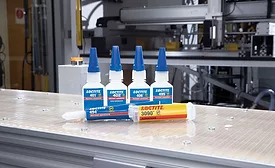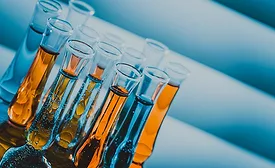Home » safety
Articles Tagged with ''safety''
Proactive Safety with Gas-Detection Tapes
Gas detection tapes help manufacturing facilities identify hydrogen and ammonia leaks using gas-detecting pigment.
December 13, 2022
Ipsos Survey Finds Strong Support for Workplace COVID-Control Mandates
The survey found varying support levels for protective mandates across countries.
January 4, 2022
Commitment to Reduce Worker Formaldehyde Exposure Reaches 99.7% Compliance
The Voluntary Agreement commits the vast majority of formaldehyde production in Europe, covering 16 countries across the continent.
May 25, 2021
Ashland Publishes 2019 Corporate Sustainability Report
According to Ashland, its sustainability report and webpages include examples of how the company is improving products and processes while preserving natural resources and enhancing the communities in which it operates.
October 21, 2020
American Chemistry Council Renews Alliance with U.S. Occupational Safety and Health Administration
Three groups from ACC continue to lead the work with OSHA: the Center for the Polyurethanes Industry (CPI); and the Diisocyanates (DII) and Aliphatic Diisocyanates (ADI) panels.
October 13, 2020
Revenues from Smart Coatings and Surfaces for Combatting Bacteria and Viruses Projected to Top $1 Billion by 2025
The severity of COVID-19 means that both consumer and industrial markets are now intensely interested in providing antimicrobial protection to employees and loved ones.
September 8, 2020
Keep the info flowing with our newsletters!
Get the latest industry updates tailored your way.
JOIN TODAY!Copyright ©2026. All Rights Reserved BNP Media.
Design, CMS, Hosting & Web Development :: ePublishing









